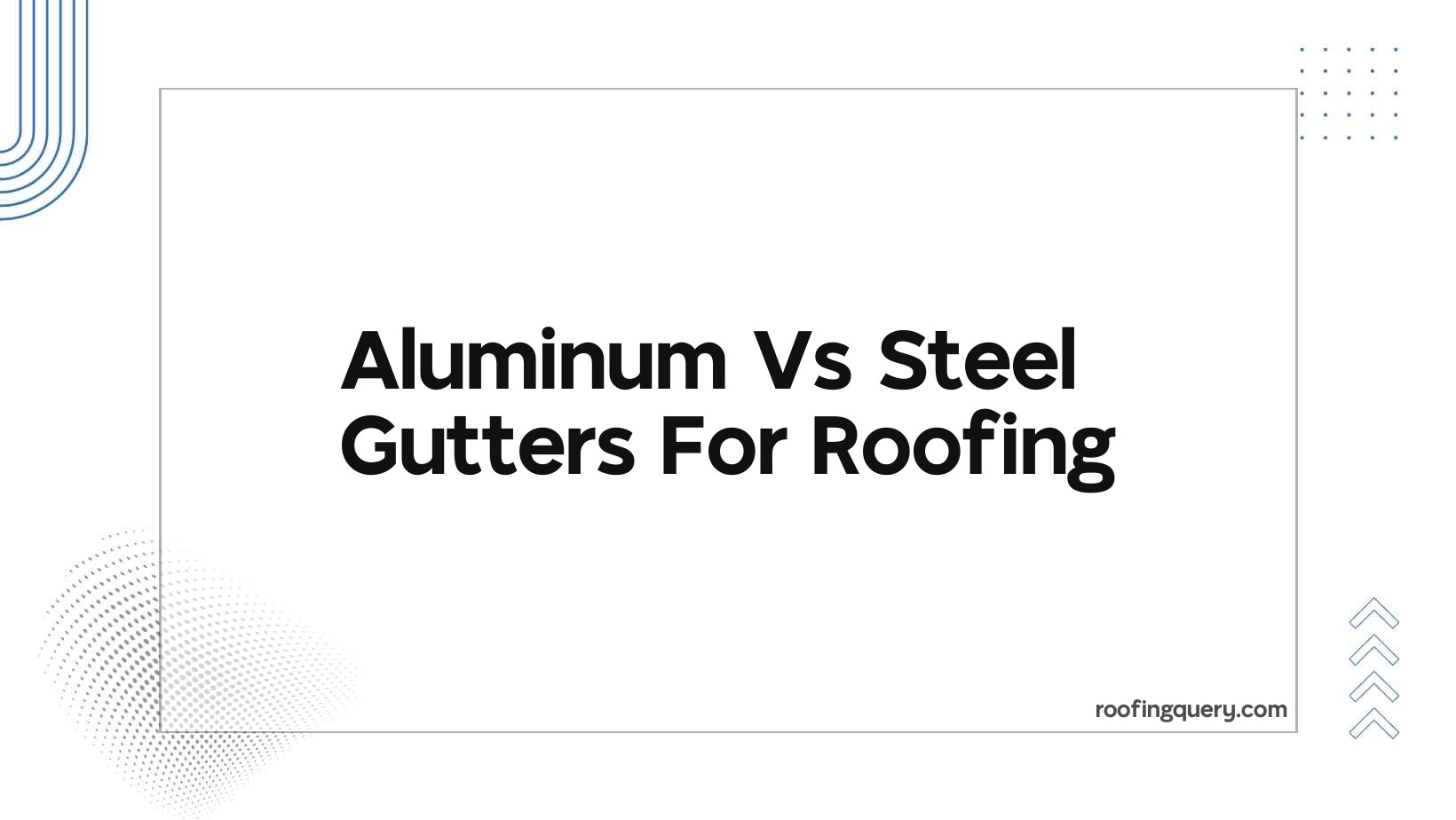Introduction:
Aluminum vs steel gutters for roofing is a question many homeowners face when they are ready to replace their old, outdated gutters. While both materials have their pros and cons, the decision ultimately comes down to personal preference and budget.
Aluminum gutters are less expensive than steel gutters and are easier to install. They are also available in a wide variety of colors to match your home’s exterior. However, aluminum gutters are more susceptible to denting and can be more difficult to repair if they are damaged.
Steel gutters are more durable than aluminum gutters and are less likely to dent or become damaged. They are also available in a variety of colors, but are more expensive than aluminum gutters.
Differences Between: Aluminum vs Steel Gutters for roofing
1. Aluminum is much lighter than steel, making it easier to work with during installation.
2. Steel is more durable and will last longer than aluminum.
3. Aluminum is more resistant to corrosion than steel.
4. Steel is more expensive than aluminum.
5. Aluminum is available in a wider range of colors than steel.
6. Steel is more difficult to cut than aluminum.
7. Aluminum is more likely to dent than steel.
8. Steel gutters will need to be painted periodically to prevent rust, while aluminum gutters will not.
Review of aluminum
Pros:
1. Aluminum is a more durable material than steel and will not rust or corrode over time.
2. Aluminum is a lighter weight material than steel, making it easier to install and less likely to cause structural damage to your home.
3. Aluminum gutters are available in a variety of colors to match the exterior of your home.
4. Aluminum is a more affordable material than steel, making it a more budget-friendly option for roofing.
5. Aluminum gutters are easier to clean than steel gutters and will not collect as much debris over time.
6. Aluminum is a non-conductive material, making it a safer option around electrical lines.
7. Aluminum is a recyclable material, making it a more environmentally friendly option than steel.
8. Aluminum gutters will not dent or ding as easily as steel gutters.
9. Aluminum is a more malleable material than steel, making it easier to work with during installation.
10. Aluminum gutters have a smooth, sleek appearance that can enhance the curb appeal of your home.
Cons:
1. Aluminum gutters can be more prone to leaks than steel gutters.
2. Aluminum is a softer material than steel and can dent or ding more easily.
3. Aluminum gutters can be more expensive than steel gutters.
4. Aluminum is
In-depth Review of steel gutters for roofing
1. Steel gutters are more durable than aluminum gutters and can better withstand heavy rains and snowfall.
2. Steel gutters are less likely to dent or become misshapen than aluminum gutters.
3. Steel gutters can be painted to match the exterior of your home, whereas aluminum gutters are limited to silver or white.
4. Steel gutters are more expensive than aluminum gutters.
5. Aluminum gutters are more resistant to corrosion than steel gutters.
6. Aluminum gutters are lighter in weight than steel gutters and therefore easier to install.
7. Aluminum gutters can expand and contract with temperature changes more than steel gutters, which reduces the risk of leaks.
8. Aluminum gutters are more reflective than steel gutters and can help reduce your home’s energy costs.
9. Steel gutters can rust over time, especially if they are not properly maintained.
10. Aluminum gutters are the more environmentally friendly option as they can be recycled.
Hopefully, you are clear on the difference between aluminum and steel gutters for roofing. If you still have any questions, feel free to comment below.

